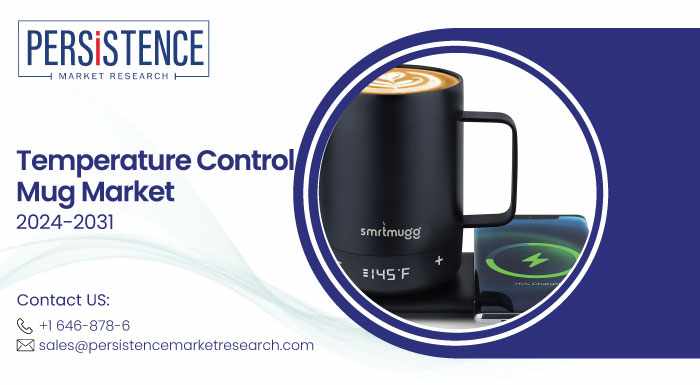
In recent years, psychedelic mushrooms, particularly those containing psilocybin, have garnered significant attention for their therapeutic potential in revolutionizing mental health treatments. Once regarded as recreational substances, psychedelic mushrooms are now at the forefront of medical research, particularly in the context of treating treatment-resistant mental health disorders.
Read More: https://www.persistencemarketresearch.com/market-research/psychedelic-mushrooms-market.asp
This shift is largely driven by the growing body of scientific evidence suggesting that psilocybin, the active compound in psychedelic mushrooms, can be highly effective in treating a range of mental health conditions. These include depression, anxiety, post-traumatic stress disorder (PTSD), and addiction, especially for patients who have not responded to traditional treatments. With the global mental health crisis intensifying, psychedelic mushrooms could offer an innovative and potentially life-changing alternative to conventional therapies.
Psilocybin and Its Impact on Mental Health
1. Effective Treatment for Depression
One of the most promising aspects of psilocybin is its potential to treat depression, particularly treatment-resistant depression (TRD). Studies have shown that psilocybin can offer rapid and lasting relief for people who have not responded well to traditional antidepressant medications. Unlike SSRIs (selective serotonin reuptake inhibitors), which can take weeks to show effects and often come with significant side effects, psilocybin therapy has been demonstrated to produce improvements in mood and cognition with just a single dose.
Psilocybin is believed to work by resetting brain activity in a way that helps break the cycle of negative thinking associated with depression. It appears to increase neural connectivity between different parts of the brain, particularly those that govern emotions and cognitive flexibility. This brain "rewiring" is thought to help individuals gain new perspectives on their problems, improving their emotional regulation and reducing the symptoms of depression.
Psilocybin's fast-acting effects: Studies indicate that psilocybin therapy can lead to significant improvements in mood and emotional well-being, often within hours of treatment.
2. Efficacy in Anxiety and PTSD
In addition to depression, psilocybin has also shown significant potential in the treatment of anxiety, particularly anxiety associated with terminal illness, and PTSD. Research has demonstrated that psilocybin can reduce fear and emotional distress by enabling individuals to confront traumatic memories in a supportive, controlled environment. For those suffering from terminal cancer-related anxiety, psilocybin therapy has been shown to provide profound improvements in emotional well-being, helping patients come to terms with their diagnosis.
For individuals with PTSD, the therapeutic potential of psilocybin lies in its ability to help them process traumatic memories without triggering overwhelming emotional responses. This makes it a promising treatment for those who struggle with traditional talk therapies or exposure therapies that often re-traumatize the patient.
Treating trauma: Psilocybin has the ability to aid in trauma processing, helping individuals with PTSD face and reframe their traumatic experiences.
3. Addiction Recovery and Substance Use Disorders
Psilocybin has also shown promise in treating substance use disorders. Studies have found that psilocybin-assisted therapy can help individuals battling alcohol addiction and smoking cessation by breaking the psychological patterns that contribute to addictive behaviors. Psilocybin is thought to create new neural pathways that allow individuals to perceive their addiction from a fresh perspective, making it easier for them to overcome cravings and triggers.
Moreover, the psychedelic experience induced by psilocybin is often described as profound and transformational, allowing individuals to gain deep personal insights about their addictive behaviors. This process can be further supported by psychotherapy, making psilocybin a powerful tool in addiction treatment programs.
Addiction treatment: Psilocybin’s ability to alter the brain's reward system and create lasting changes in behavior is being explored as a promising treatment for addiction.
How Psilocybin Works: A Deeper Look
1. Neuroplasticity and Brain Rewiring
The psychedelic experience triggered by psilocybin is believed to promote neuroplasticity, or the brain's ability to form new neural connections. This is thought to be crucial in overcoming mental health conditions like depression and PTSD, which often involve rigid, maladaptive thought patterns. Psilocybin helps the brain become more flexible, allowing for new perspectives and emotional breakthroughs.
During a psilocybin session, the brain's default mode network (DMN)—which is associated with self-reflection and rumination—becomes temporarily less active. This may help patients step outside of their habitual thought patterns and view their issues from a new vantage point. This "reboot" can result in a profound sense of clarity and relief from mental health symptoms.
Brain rewiring: Psilocybin's ability to create new neural connections helps patients overcome entrenched thought patterns that contribute to mental health issues.
2. Enhanced Emotional Processing
Psilocybin also facilitates emotional processing by allowing individuals to confront difficult emotions in a safe, controlled environment. Studies suggest that psilocybin enables people to access deep emotional insights and process repressed feelings, leading to long-term improvements in emotional well-being. This is especially beneficial for individuals with trauma or chronic anxiety, where emotional avoidance has contributed to their suffering.
In combination with psychotherapy, psilocybin-assisted therapy can enable individuals to confront past trauma, process difficult emotions, and emerge with a renewed sense of emotional stability and resilience.
Emotional insight: Psilocybin enables deep emotional exploration, helping patients face repressed feelings and achieve healing.
Clinical Trials and the Path to Legalization
As interest in the therapeutic potential of psychedelic mushrooms grows, the regulatory landscape is beginning to shift. Clinical trials are at the heart of the movement to bring psilocybin into mainstream medicine. Several pharmaceutical companies and research institutions are conducting rigorous studies to explore the safety and efficacy of psilocybin as a treatment for mental health disorders. The FDA has already granted Breakthrough Therapy Designation to psilocybin for treatment-resistant depression, fast-tracking its path to approval.
Clinical validation: As more research and clinical trials confirm the benefits of psilocybin, the regulatory landscape will evolve to allow for wider adoption of psilocybin-assisted therapies.
Conclusion: A New Era for Mental Health Treatment
The therapeutic potential of psychedelic mushrooms, particularly psilocybin, is poised to revolutionize the treatment of mental health disorders. With its ability to address conditions like depression, PTSD, anxiety, and addiction, psilocybin offers an innovative and effective alternative to traditional treatments. As the body of research grows and the regulatory landscape evolves, psilocybin has the potential to become a mainstream treatment, transforming the lives of millions around the world. The future of mental health care may very well lie in the psychedelic revolution.




















Write a comment ...